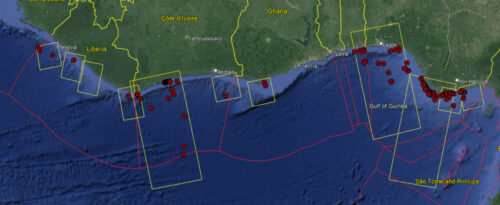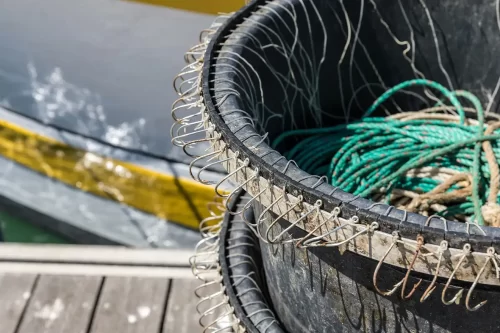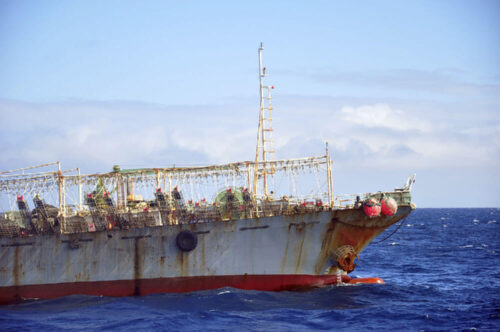The term IUU crops up frequently on our site and in discussions of the global fishing industry. It stands for illegal, unreported and unregulated fishing, and it is one of the most serious threats to the sustainability of world fisheries.
The most often cited report estimates the total IUU catch in 2003 to have been between 11 million and 26 million tons of fish. Some experts suggest that 10 to 30 percent more fish are being taken from the ocean than what is accounted for by legal fishing. Efforts are underway to update those estimates which are now more than a decade old, but it is an extremely difficult task.
Different forms of illegal fishing include fishing without a license, exceeding quotas, targeting under-sized fish or endangered species, using banned fishing gear, fishing in restricted or closed areas such as marine protected areas or inshore waters reserved for local artisanal fishermen, repackaging illegal catch into containers labeled with the name of a legal vessel, and transshipping (unauthorized transfer of catch from one vessel to another vessel or to a refrigerated cargo ship).
Unreported fishing occurs when a fishing operator fails to report or under-reports the amount of his or her catch to authorities. It also occurs in instances when reporting of catch is advisable but not required by law.
Unregulated fishing occurs either because coastal states don’t have the means to regulate and monitor their waters, or because a fishing vessel is not registered or flagged by a country adhering to a Regional Fisheries Management Organization (RFMO—a multi-national body that establishes regulations for managing an area of the high seas).
The Damage Caused by IUU Fishing:
Fishing for the Future
Quotas and catch limits are set based on how many fish scientists believe can be taken without collapsing a given fishery. According to the United Nations Food and Agriculture Organization (FAO), as of 2013 nearly a third of the world’s fish stocks were already over fished, and nearly two thirds were fished to capacity.
IUU fishing can hinder the recovery of overfished stocks and prevent scientists from making accurate calculations of fishing pressure. If it raises the total catch of a given stock above sustainable limits, IUU fishing can push a fishery to the point of collapse and reduce biodiversity in important ecosystems.
Reducing an Honest Wage
Illegal fishing not only costs coastal states millions of dollars in lost revenue, but it robs fish from legitimate operators. In developing countries with few resources for monitoring and enforcement, rampant IUU fishing depletes stocks and damages marine ecosystems that local fishers rely on for survival. When IUU-caught fish enters the legal marketplace, it may change the economic dynamics of supply and demand, reducing the potential earnings of legitimate fishers. This is especially true in developing nations.
The Specter of Food Insecurity
Globally, fish account for just under one fifth of animal protein consumption, providing essential nutrition for billions of people. The threats posed by IUU fishing to the sustainability of fisheries directly impacts food security for a large portion of the global population. IUU fishing is a problem that occurs throughout all oceans, but the consequences are most devastating in poorer areas of the world.
The immense environmental, economic, and social costs of IUU fishing are the main reasons we founded Global Fishing Watch. While our data can’t solve the problem, we think we can make a difference.
According to the FAO 2016 State of World Fisheries and Aquaculture report, satellite monitoring is among “the most cost-effective and efficient means of combating IUU fishing.” We believe increased transparency in the commercial fishing industry will help drive market demand for sustainably sourced seafood and reduce incentives for unscrupulous behavior.
Freely available to everyone with an internet connection, Global Fishing Watch can empower concerned citizens to hold their regulating bodies accountable and assist coastal states with limited resources in remotely monitoring fishing activity within their waters.
What’s more, our data can help scientists quantify fishing activity, including some of the most egregious IUU fishing that has, until now, been mostly invisible.


